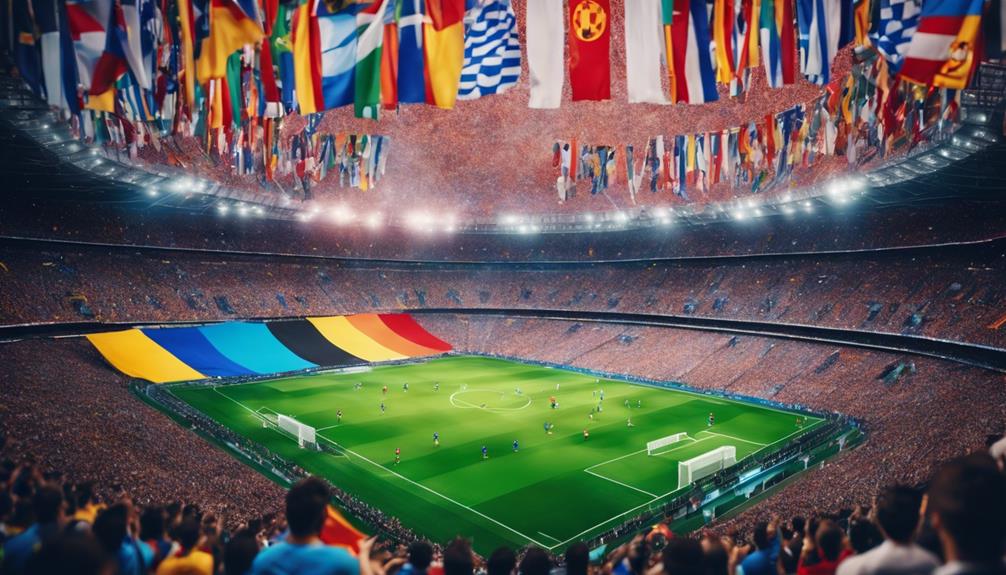UEFA has officially announced a new format for the Champions League starting in the 2024 season. The changes aim to enhance competitive balance by directly qualifying the top 8 teams to the round of 16 and introducing a knockout phase for teams ranked 9th to 24th. This will result in each club playing 8 games during the league phase, totaling 189 games. The adjustments promise a dynamic and competitive environment, concluding the group stage in January. Additionally, the new structure eliminates drop-downs to the Europa League, ensuring a high level of competitiveness in the tournament. Further details await discovery.
Key Takeaways
- Introduction of significant format changes for enhanced competitiveness.
- Direct qualification for top 8 teams to the Round of 16.
- Teams ranked 9th to 24th engage in a qualifying round.
- Allocation of extra group stage spots based on performance.
- Swiss Model adopted for balanced distribution of teams.
Changes to Champions League Format
The Champions League format for the 2024 season will introduce significant changes to how clubs compete in the prestigious tournament. With the UEFA decision to revamp the format, the knockout phase will witness alterations that aim to enhance competitive balance among European clubs.
In this new structure, the top 8 sides will secure direct qualification for the round of 16, while teams ranked 9th to 24th will engage in a two-legged knockout phase to advance further in the competition. Importantly, extra group stage spots will be allocated based on various criteria, including domestic champions and associations with the best collective performance.
This shift in the Champions League format reflects UEFA's dedication to promoting fair competition and ensuring an exciting spectacle for football enthusiasts worldwide. By incorporating these changes, UEFA aims to elevate the overall experience of the tournament, providing more opportunities for teams to showcase their talents on a grand stage and offering fans a higher level of engagement throughout the season.
Teams and Group Division
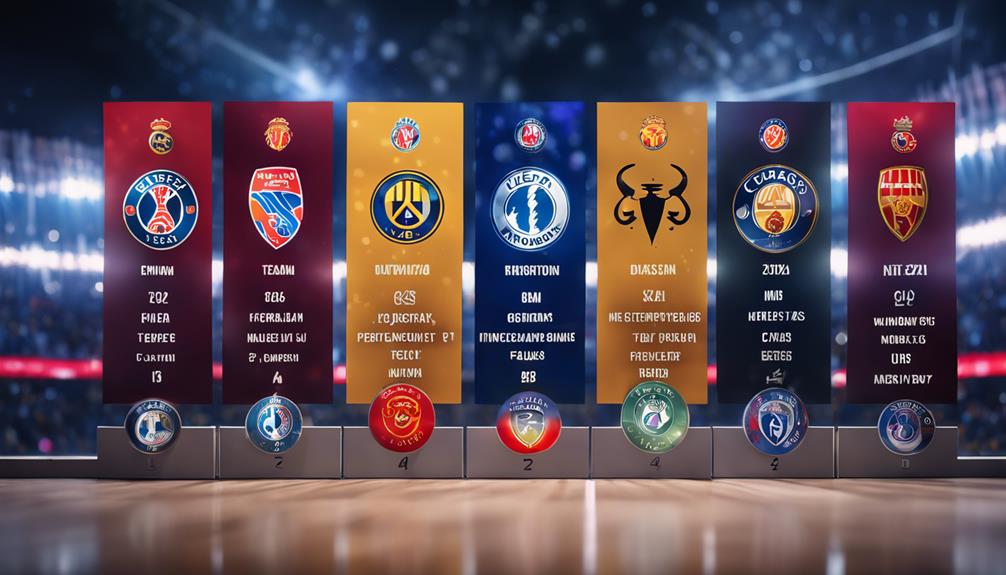
Teams in the upcoming 2024 Champions League will be categorized and placed into specific groups based on their performance and rankings. The UEFA Executive Committee has approved a new format where 36 teams will be split into four seeding pots. Pot 1 will consist of the reigning champions and the top eight clubs according to their coefficient ranking. This system aims to guarantee a balanced distribution of strong and emerging teams across the groups. The European Club Association played a significant role in proposing this change to the Champions League knockout stage.
The division of teams into groups will follow the Swiss Model, where teams will face opponents with a similar level of performance. Each club will play a total of 8 games during the league phase, with an equal split between home and away matches. The top 8 teams from this phase will directly proceed to the Round of 16, while teams ranked 9th to 24th will need to compete in a qualifying round to secure their spots in the knockout phase.
Number of Games Played

With 8 matches scheduled for each club in the league phase of the new Champions League format, the season promises a dynamic and competitive environment for teams. The reduction from the initially planned 10 group stage games to 8 will intensify the competition while ensuring a more streamlined schedule. In total, 189 games will be played under the new format, providing fans with an extended period of top-tier European football. The addition of two extra matchdays, leading the group stage to conclude in January, offers teams more opportunities to showcase their skills and battle for advancement.
Each club participating in the Champions League will face 8 different opponents during the league phase, adding variety and unpredictability to the competition. This format change aims to enhance the excitement for both players and fans alike, as teams navigate through a more condensed and intense group stage. The new structure not only increases the number of games played but also elevates the level of competitiveness in the prestigious tournament.
Advancement to Round of 16

In the new UEFA Champions League format starting in the 2024 season, the top 8 teams from the league phase will secure direct qualification to the Round of 16 knockout stage.
Teams ranked between 9th and 24th will need to compete in a qualifying round to earn a spot in the Round of 16.
The strategic importance of each match will be heightened as the knockout phase pairings will be influenced by the rankings from the league phase.
Round of 16 Criteria
After the league phase of the new Champions League format, the top 8 teams automatically advance to the Round of 16. Teams ranking between 9th and 24th will enter a qualifying round to secure a place in the Round of 16. The knockout pairings in this round will be partly determined by the rankings obtained during the league phase. However, clubs that find themselves ranked 25th or lower at the conclusion of the league phase will be eliminated from the competition.
This criteria for the Round of 16 aims to maintain a high level of competitiveness throughout the tournament, ensuring that matches remain engaging and meaningful for both players and fans. By allowing the top 8 teams to progress directly to the knockout stage, UEFA seeks to generate exciting matchups early on in the tournament, setting the stage for intense and thrilling encounters as the Champions League progresses.
Knockout Stage Teams
Teams qualifying for the Round of 16 in the UEFA Champions League knockout stage will include the top 8 teams from the league phase and those ranked between 9th and 24th who successfully navigate the qualifying round. The knockout phase pairings will be influenced by the rankings from the league phase matches, adding a strategic element to the draw. Additionally, there will be no drop-down to the Europa League for teams participating in the Champions League knockout stage, emphasizing the focus on progressing within the prestigious competition.
| Column 1 | Column 2 | Column 3 |
|---|---|---|
| Top 8 Teams | Teams ranked 9-24 | Direct Advancement to Round of 16 |
| League Phase Rankings | Qualifying Round | Pairings Determined by Rankings |
This format guarantees that the top-performing teams from the league phase have a direct path to the Round of 16, while also providing an opportunity for other competitive teams to secure their spots through the qualifying round.
Qualifying Round Details
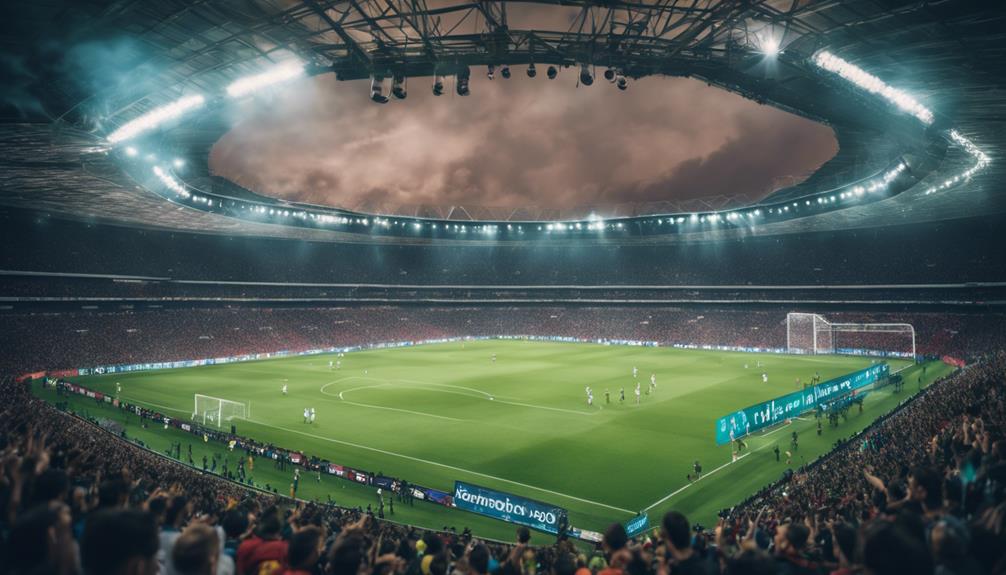
When do the teams ranked 9th to 24th in the league phase participate in the UEFA Champions League qualifying round?
Teams placed 9th to 24th in the league phase will be involved in the qualifying round. This phase entails a two-legged knockout format where these teams will compete.
The pairings for the knockout phase will be determined in part by the rankings established during the league phase. It's important to note that teams ranked 25th or lower will be eliminated from the competition at this stage.
Following the qualifying round, the competition progresses with further knockout rounds leading up to the final match, which will take place at a neutral venue.
This format ensures that teams vying for a spot in the Champions League must navigate through a challenging series of matches, with each fixture becoming increasingly important as they aim to advance towards the prestigious final showdown.
Introduction of Swiss Model
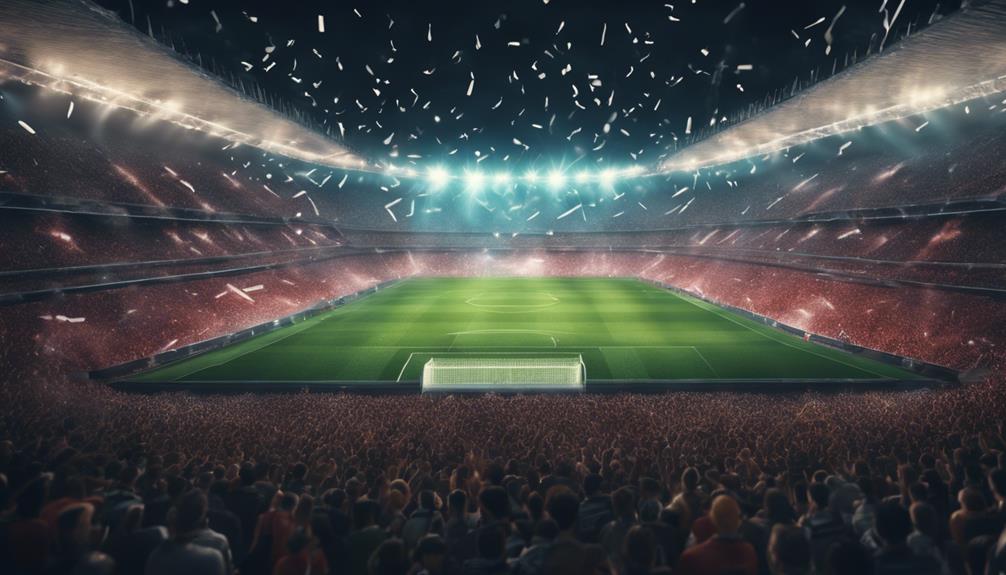
The introduction of the Swiss Model in the UEFA Champions League format for the 2024 season marks a significant shift in how teams will compete.
Under this model, teams will accumulate points based on their performance in the league phase, with the top 8 teams advancing to the knockout stage.
This change is expected to impact team strategies, increase the level of competition, and potentially alter fan engagement with the tournament.
Swiss Model Overview
Introducing a new approach to the UEFA Champions League format for the 2024 season, the Swiss Model revolutionizes the competition by involving 36 teams in a dynamic league phase. Each of the 36 teams will play a total of 8 games against 8 different opponents during this league phase.
Inspired by the Swiss-system tournament commonly used in chess competitions, this model guarantees that teams are ranked in one table based on the points they accumulate throughout the league phase. Unlike the previous format, the Swiss Model ensures that all group stage fixtures are known from the outset, providing fans and clubs with clear visibility of the matches to come.
This innovative structure aims to enhance competition, increase excitement, and eliminate the uncertainty surrounding fixture schedules. By introducing the Swiss Model, UEFA seeks to bring a fresh and engaging dimension to the prestigious Champions League tournament, offering fans and teams a new and intriguing format to look forward to.
Impact on Teams
Building on the innovative Swiss Model introduced for the 2024 UEFA Champions League season, the impact on teams is set to redefine the competitive landscape of the tournament.
- The Champions League format change to the Swiss model means each team will face 8 different opponents, fostering intense competition throughout the league phase.
- Teams will now earn points based on wins and draws, with the top 8 teams advancing directly to the round of 16, ensuring every match holds significance.
- The points system inspired by the Swiss-system tournament in chess will place teams in one table, setting the stage for strategic matchups and competitive fixtures from the start.
- This shift promises more balanced and meaningful fixtures early in the competition, enhancing the overall quality and excitement of the Champions League.
Fan Reaction
Fans across the football community have expressed a mix of excitement and skepticism in response to the introduction of the Swiss Model in the UEFA Champions League format for the 2024 season. The new format, inspired by Esports competitions, aims to provide a more balanced and fair fixture list for participating teams. With teams set to play 8 matches in the league phase against opponents from different pots, fans anticipate a varied and competitive schedule, potentially leading to more engaging matchups throughout the season.
While some fans welcome the change, seeing it as a step towards increasing the quality and competitiveness of matches, others remain cautious. Concerns have been raised about the elimination of the traditional group stage and the shift to a points-based system, with some fearing a loss of the drama and tension that the previous format offered.
Stakeholder Benefits

The new Champions League format promises to deliver significant benefits to various stakeholders involved in European football. These benefits include:
- Financial Support: The new format aims to provide financial support and solidarity for clubs that don't participate directly in the Champions League, helping to promote a more balanced financial landscape across European Leagues.
- Competitive Balance: By ensuring more major team meetings and fixtures under the new format, UEFA aims to enhance competitiveness among participating teams, ultimately leading to a more balanced and thrilling competition.
- UEFA Coefficient: The changes in the Champions League format are expected to positively impact the UEFA coefficient, reflecting the overall strength and competitiveness of European clubs in international competitions.
- Stakeholder Needs: The new format is designed to meet evolving stakeholder needs, ensuring that the interests of clubs, players, fans, and other entities involved in European football are considered and addressed effectively.
Broadcast Rights Enhancement

The new UEFA Champions League format changes aim to boost broadcast rights value through the establishment of new partnerships and the enhancement of the viewer experience. These developments are projected to greatly increase revenue, potentially reaching between €4.6 billion and €4.8 billion.
Discussions surrounding prize money distribution are ongoing, indicating potential financial implications for participating clubs.
New Broadcast Partnerships
New broadcast partnerships are set to revolutionize the UEFA Champions League format for the 2024 season, enhancing broadcast rights and expanding audience reach. This strategic move aims to boost revenue and solidify the competition's standing in the world of European football.
Key points to take into account in this development include:
- Increased Value: The new broadcast partnerships are expected to notably boost the value of Champions League broadcast rights, potentially reaching around €3.6 billion per season.
- Prize Money Distribution: Ongoing discussions regarding prize money distribution seek to motivate clubs further and make sure they benefit financially from the enhanced broadcast rights.
- Viewership Expansion: The format change is geared towards attracting a larger viewership, securing the future of European football through increased audience engagement.
- Enhanced Coverage: The focus on broadcast enhancements underscores the commitment to maximizing revenue potential and delivering a more immersive viewing experience for fans worldwide.
Enhanced Viewer Experience
Enhancing the viewer experience through broadcast rights enhancement is a top priority in UEFA's new Champions League format for 2024. By restructuring the competition, UEFA aims to create a more competitive and engaging tournament that captivates fans across various platforms. The changes are expected to lead to more major team meetings and fixtures, ultimately attracting a larger audience and increasing the value of broadcast rights. Broadcasters are anticipated to benefit from higher viewership and engagement as a result of these modifications. The primary goal of the new format is to maximize the commercial potential of the Champions League, making it a more appealing product for both broadcasters and viewers.
| Benefits of Enhanced Viewer Experience | |
|---|---|
| Increased audience engagement | Higher value in broadcast rights |
| More competitive tournament | Greater commercial potential |
Audience Engagement Increase
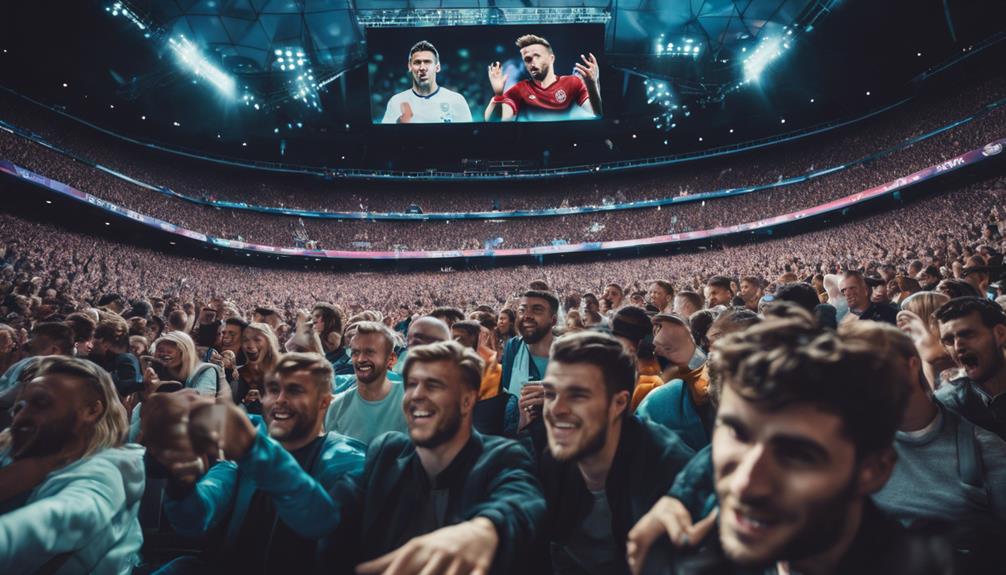
In an effort to enhance viewer participation, the UEFA Champions League format for the 2024 season emphasizes more competitive matches early in the tournament. This strategic shift aims to increase audience engagement by providing fans with top-level matchups and meaningful games right from the start.
The following list explores further into the significance of these changes for audience engagement:
- Early Excitement: By introducing more competitive matches in the league phase, fans are immediately drawn into the intensity of the competition.
- Increased Relevance: With 36 teams playing 8 games each, every match carries more weight, making each encounter significant and engaging for viewers.
- Dynamic Viewing Experience: The revamped format promises a more dynamic and unpredictable tournament, keeping audiences on the edge of their seats throughout.
- Growing Viewership: The focus on increased audience engagement is expected to attract more viewers, leading to a broader and more engaged fan base for the Champions League.
Exciting Matchups Overview
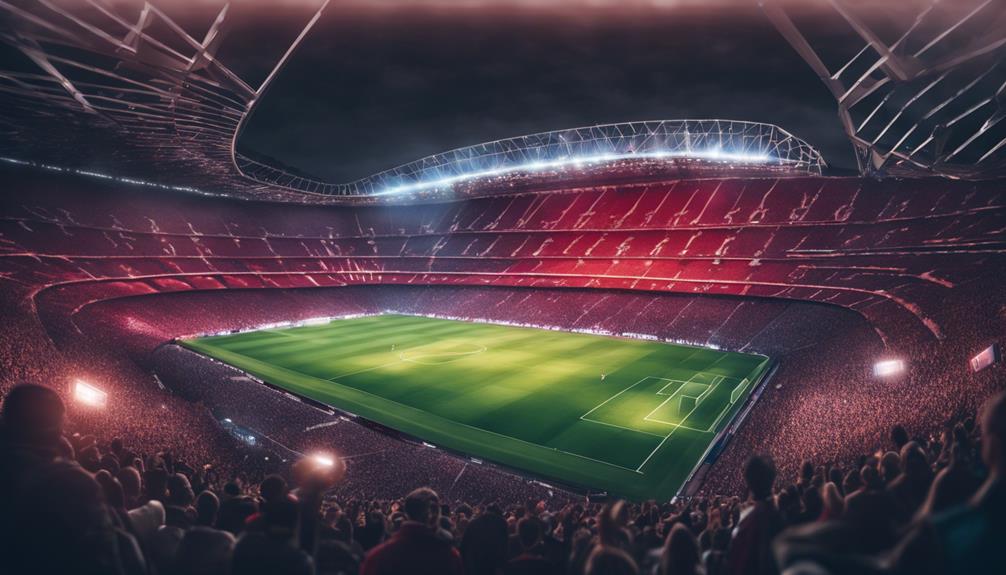
Real Madrid's upcoming showdown with Bayern Munich in the UEFA Champions League 2024-25 season exemplifies the intensity and competitiveness fostered by the revamped tournament format. With Real Madrid leading 2-0 in the first leg, Bayern Munich has encountered challenges breaking down their opponent's solid defense, struggling to find the back of the net.
Throughout the Champions League 2024-25 season, Bayern Munich has shown inconsistency and difficulties when facing top teams, reflecting the competitive nature of the new format. This matchup between two European giants not only highlights the competitive spirit of the competition but also underlines the impact that the format changes have had on the quality of matchups.
As both teams vie for supremacy on the European stage, fans can anticipate an exciting and closely contested battle between Real Madrid and Bayern Munich, showcasing the thrilling nature of these high-stakes encounters in the UEFA Champions League.
Calendar Adjustments
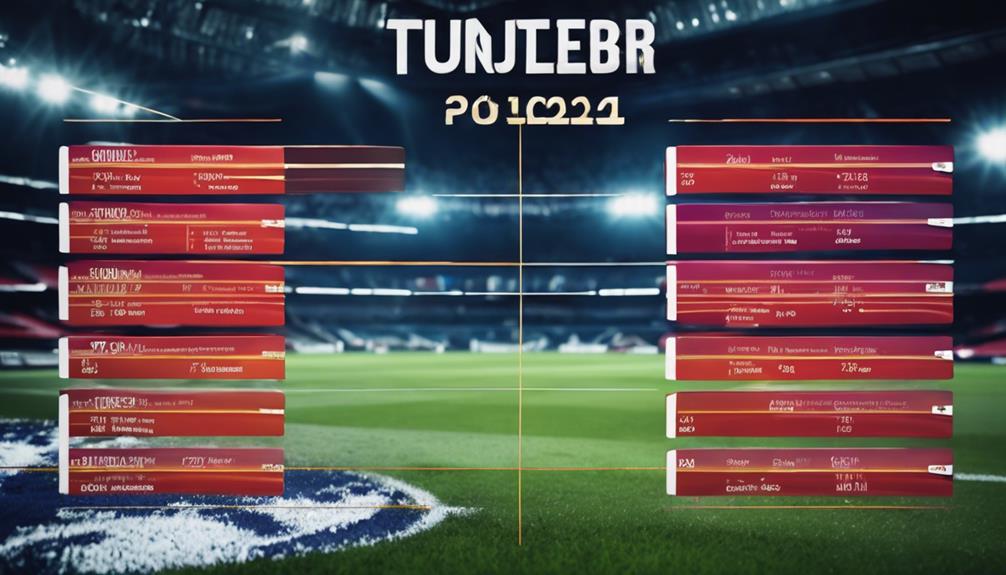
With adjustments to the calendar for the 2024 season, the UEFA Champions League will feature an extended group stage ending in January. This change aims to enhance the competition and provide fans with more exciting matchups earlier in the tournament.
The calendar adjustments include the following key points:
- Extended Group Stage: The group stage will now conclude in January, allowing for additional matchdays compared to the current format.
- 8 Matches: Teams will play a total of 8 matches during the league phase, giving them more opportunities to secure points and advance to the knockout phase.
- Knockout Phase: Pairings in the knockout phase will be influenced by the teams' rankings based on their performance in the league phase.
- Competitive Matches and Top Team Encounters: The new format is designed to increase the number of competitive matches and ensure earlier matchups between top teams, offering fans more thrilling football action from the start of the tournament.
Fan Experience Improvements
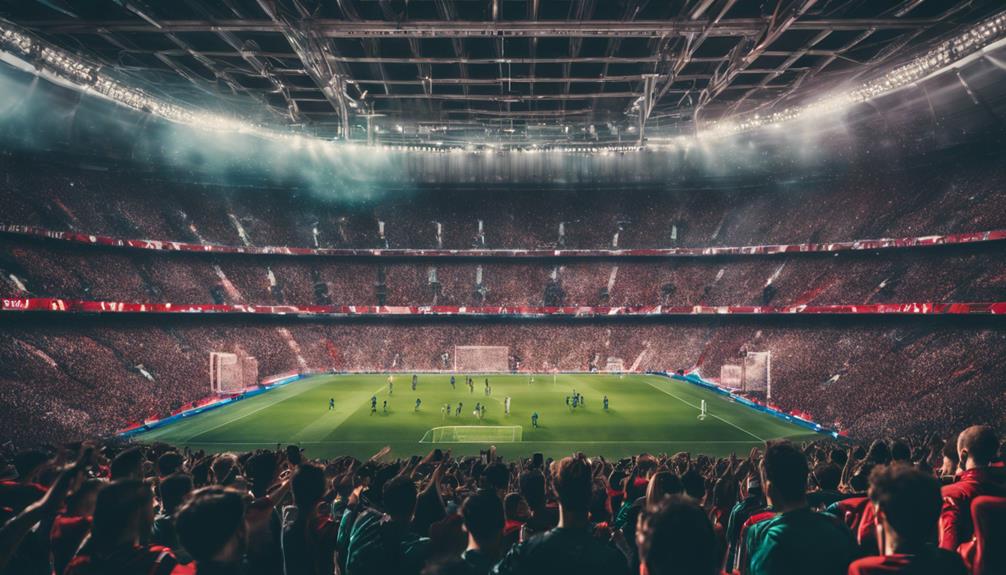
Enhancing fans' experience, the new UEFA Champions League format post-2024 promises increased diversity, excitement, and competitiveness from the outset.
With more European teams participating, fans can look forward to a more diverse competition with a greater variety of matchups.
The inclusion of earlier top matches in the new format will build anticipation and elevate the overall fan experience.
Moreover, the improved competitive balance will lead to closer and more thrilling matches throughout the league phase, ensuring that every game is engaging and impactful.
The new format also increases the stakes for each match, as every result will have a substantial influence on the team's position in the league table.
European Game Advantages
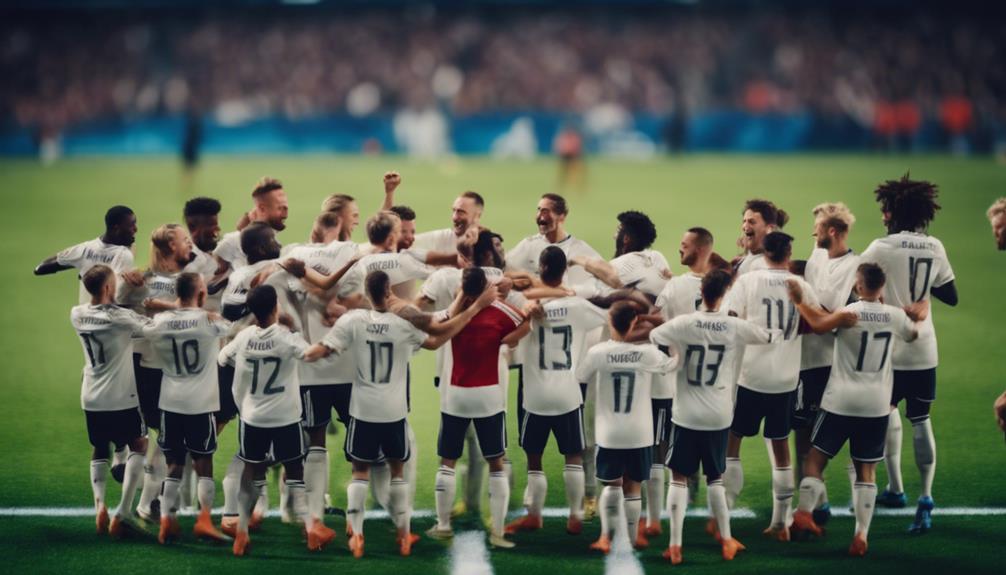
The increased competition levels in the new Champions League format will pit top clubs against each other more frequently. This change aims to not only enhance the viewer experience but also foster global fan engagement.
The upcoming alterations promise a more intense and enthralling European football experience for fans worldwide.
Increased Competition Levels
A notable shift towards increased competition levels in the UEFA Champions League from the 2024 season is the primary focus of the revamped format. This change aims to provide a more competitive environment for clubs and enhance the overall football experience for fans.
Here are some key points to contemplate regarding the increased competition levels:
- More Opportunities: The new format allows 36 clubs to participate in the league phase, providing more opportunities for teams to compete against top-tier opponents.
- Increased Matches: With each club playing 8 matches against 8 different opponents, there will be a higher number of competitive matches throughout the season.
- Improved Balance: Fans can anticipate earlier top matches and an improved competitive balance, with every game having a significant impact on team positions.
- Positive Future: These changes are designed to meet evolving stakeholder needs, foster financial support, and contribute to a positive future for European football by attracting more viewership and revenue.
Enhanced Viewer Experience
Supporters keenly look forward to the heightened intensity and early significance that the increased number of matches and top team matchups will bring to the European football viewing experience in the revamped UEFA Champions League format for the 2024 season. The new format, designed to guarantee competitive balance, assures that fans will witness more thrilling and meaningful games from the onset of the competition.
With 36 teams in the league phase and an increased number of matches, viewers can expect to see top teams facing off earlier in the tournament, creating excitement and anticipation. Every match played will have a direct impact on team positions in the league, adding a layer of importance and intensity to each game.
These changes not only cater to evolving stakeholder needs but also aim to secure a positive future for European football by providing an enhanced viewer experience that elevates the overall quality of the Champions League.
Global Fan Engagement
Enhancing viewer experience through increased competitiveness and early top team matchups, the revamped UEFA Champions League format for the 2024 season aims to elevate global fan engagement with European game advantages.
The changes seek to boost fan interest by providing more meaningful fixtures and enhancing the overall competitive balance of the tournament. This focus on global fan engagement is essential for UEFA as they aim to increase audience numbers and revenue streams for the competition.
Here's a closer look at how the new format benefits fan engagement:
- Increased Competitiveness: More top team matchups early in the competition raise the stakes and excitement for fans.
- Enhanced Competitive Balance: With 36 teams vying for the title, the new format guarantees a fairer playing field, keeping fans engaged throughout the season.
- Boosted Audience Numbers: By offering more thrilling and impactful games, UEFA aims to attract a larger global audience.
- Positive Fan Experience: The changes aim to create a more enjoyable and immersive experience for supporters, driving revenue and long-term interest in European football.
Evolution of Champions League
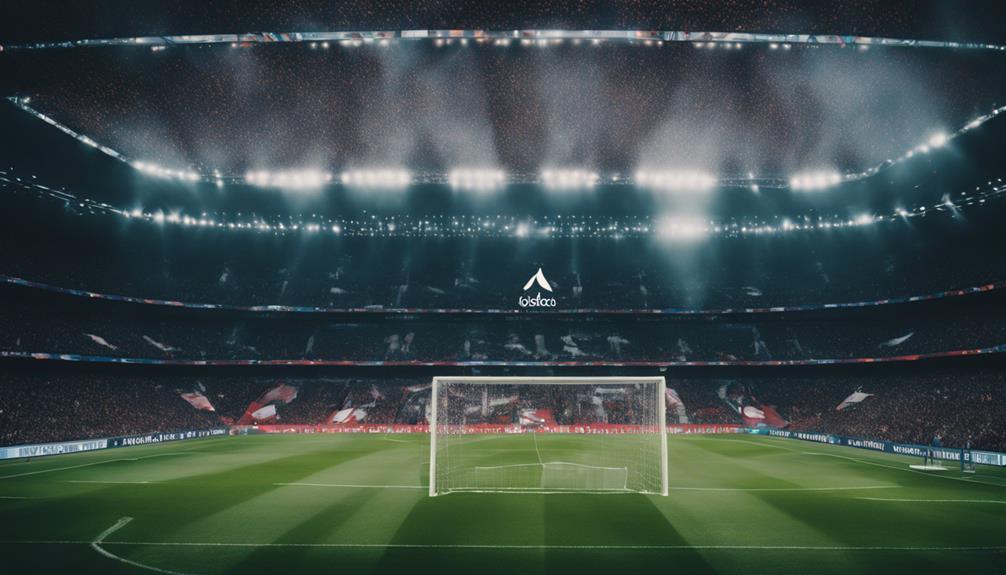
Undergoing a significant transformation for the 2024 season, the Champions League is evolving with a new format emphasizing increased competition and opportunities for clubs. The upcoming format will see 36 teams participating in a league phase, departing from the traditional group stage system. Each team will play 8 matches against 8 different opponents, providing ample chances for clubs to showcase their skills against top-tier competitors. The top 8 teams will secure automatic qualification for the round of 16, while teams ranked 9th to 24th will engage in a two-legged knockout phase. The introduction of the Swiss model, inspired by chess tournaments, will revolutionize the fixtures and offer a fresh perspective on the group stage dynamics. These changes are strategically aimed at enhancing competitiveness, ensuring greater financial support, and attracting larger audiences to the prestigious Champions League matches.
| Evolution of Champions League | |
|---|---|
| Increased competition for clubs | 36 teams in league phase |
| Opportunities for top teams | Swiss model introduced |
| Revamped format for 2024 season | Emphasis on competitiveness |
Impact on European Football
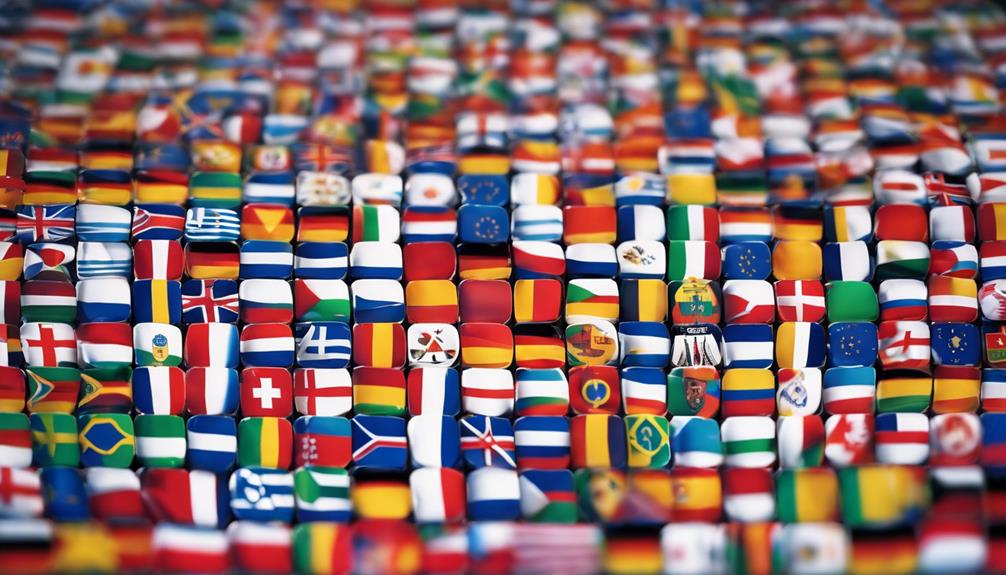
The upcoming changes to the Champions League format in 2024 will have a profound impact on European football, reshaping the landscape of elite club competitions on the continent.
- The new structure aims to provide more opportunities for clubs to compete against top teams, enhancing the overall quality of European club competitions.
- With earlier top matches in the league phase, fans can look forward to increased excitement and improved competitive balance throughout the tournament.
- Financial support and solidarity for non-participating clubs will be key benefits of the revamped Champions League format, ensuring a more inclusive approach to distributing resources.
- The knockout rounds will see a higher level of competition, as the top eight sides will battle it out for the prestigious Champions League title, raising the overall standard of play in the tournament.
Frequently Asked Questions
What Is the New Format for Champions League 2024?
The new format for the Champions League in 2024 will feature 36 teams competing in one league table. Clubs will be grouped into 4 pots of 9 teams each, based on their rankings. Each team will play 8 matches against different opponents during the league phase.
The top 8 teams will directly qualify for the round of 16, with no drop-down to the Europa League. This format aims to streamline the competition and increase the level of competition.
What Is the Format for the Europa League 2024-25?
The Europa League 2024-25 will have 36 teams participating in the league phase. Each team will engage in 8 matches. This new format replaces the traditional group stage and aims to enhance competitiveness and balance among the teams.
Teams will aim for knockout stage spots based on their performance in the league phase. The changes aim to elevate the level of competition and provide a more dynamic and engaging tournament experience for fans and players alike.
How Many Premier League Teams Qualify for the Champions League in 2024?
In 2024, the Premier League will continue to have four qualification spots for the Champions League. Despite the new format, there won't be an additional spot for the league in the 2024-25 season.
Italy and Germany are likely to secure five spots each, affecting the distribution of qualifying positions. The number of Premier League teams making it to the Champions League will remain the same in 2024.
England's performance in European competitions will determine future qualification spots.
Will Liverpool Qualify for the Champions League in 2024?
Liverpool's qualification for the Champions League in 2024 hinges on their Premier League performance and potential European competitions. Factors like the new format, historical success, squad strength, and past experiences will influence their chances.
Like a skilled navigator, Liverpool will need to leverage their strengths to secure a spot in the prestigious tournament.
Conclusion
Well, it seems like UEFA is shaking things up with the new Champions League format. With changes to team divisions, game numbers, and qualifying rounds, fans can expect a different experience starting in 2024.
While some may see this as an evolution of the tournament, others may question the impact on European football. Only time will tell how these adjustments will affect the prestigious competition.
